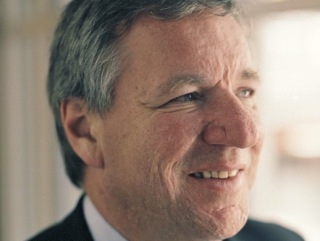Aberdeen Asset Management has reported net outflows of nearly £9bn for the latest quarter, including a single client withdrawal of about £4bn.
During the period up to 30 June, which included the take over of Scottish Widows Investment Partnership at the start, assets under management have fallen to £322.5 billion.
Net outflows were £3.3bn from SWIP and £5.5bn from Aberdeen, according to the interim management statement.
In a statement to the Stock Exchange, the company said: "The Aberdeen new business flows for the quarter were affected by the withdrawal by a single client of approximately £4 billion of low margin AuM from our Asia Pacific and global equities strategies during the quarter.
{desktop}{/desktop}{mobile}{/mobile}
"Excluding this withdrawal, the underlying flows for the quarter have a more encouraging tone: net outflows from global emerging market equities reduced to only £0.2 billion, Asia Pacific contributed £0.1 billion of net inflows and global equities saw net outflows of £0.3 billion.
"In fixed income, our emerging market debt funds remain in demand, contributing £0.7 billion of net inflows in the quarter.
"We have seen this more encouraging trend continue in July."
Martin Gilbert, chief executive of Aberdeen, an IFP corporate member, said the improvement in its underlying equity new business flows was "masked by (the) significant withdrawal by a single client" but added it was "rewarding to see growing interest in our broader product range."
Mr Gilbert said: ""We completed the acquisition of SWIP at the beginning of the quarter and we are pleased with the progress of the integration so far, in terms of both timing and the planned synergies.
"Our enlarged and strengthened business enables us to meet the needs of a broader range of clients given our diverse product mix and Aberdeen, as a result, is even better placed to deliver attractive returns to clients and shareholders alike."
AuM at 30 June totalled £322.5 billion, a 0.6% decrease on 31 March.

